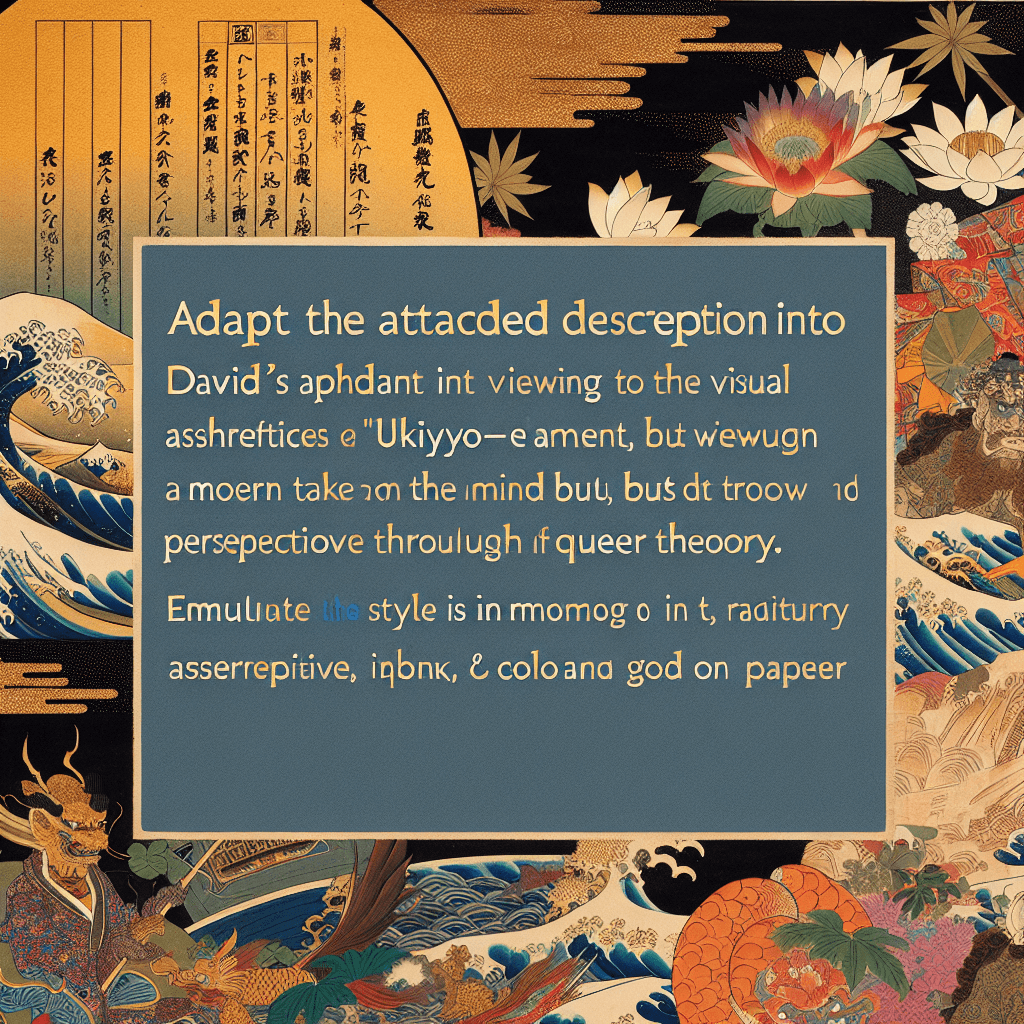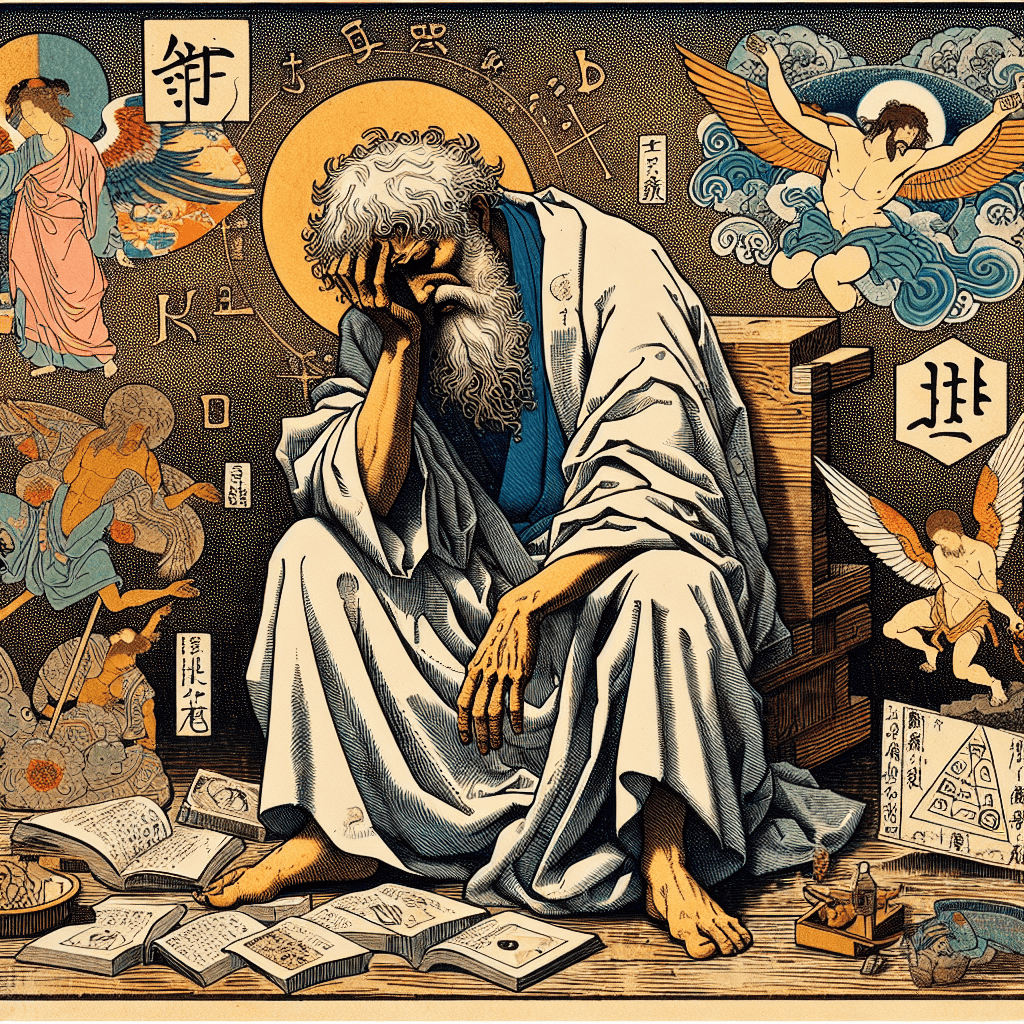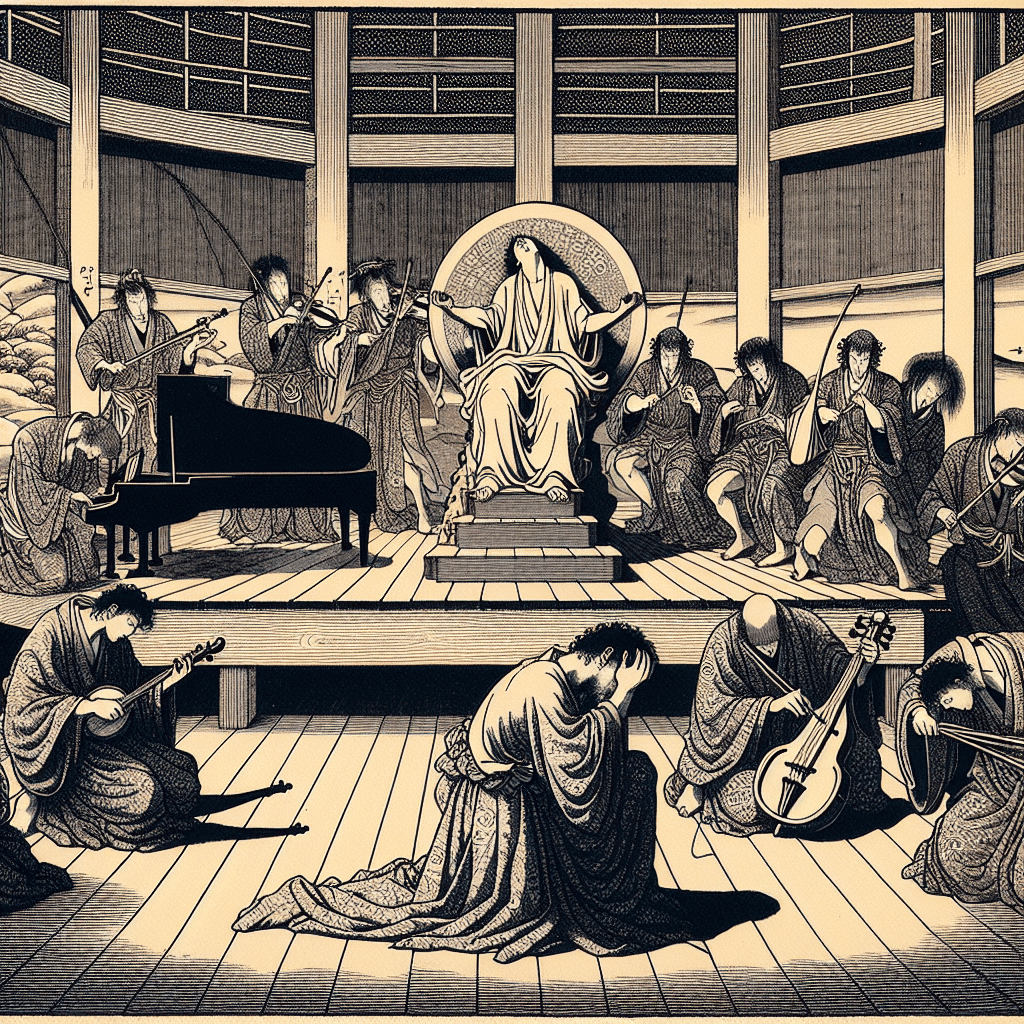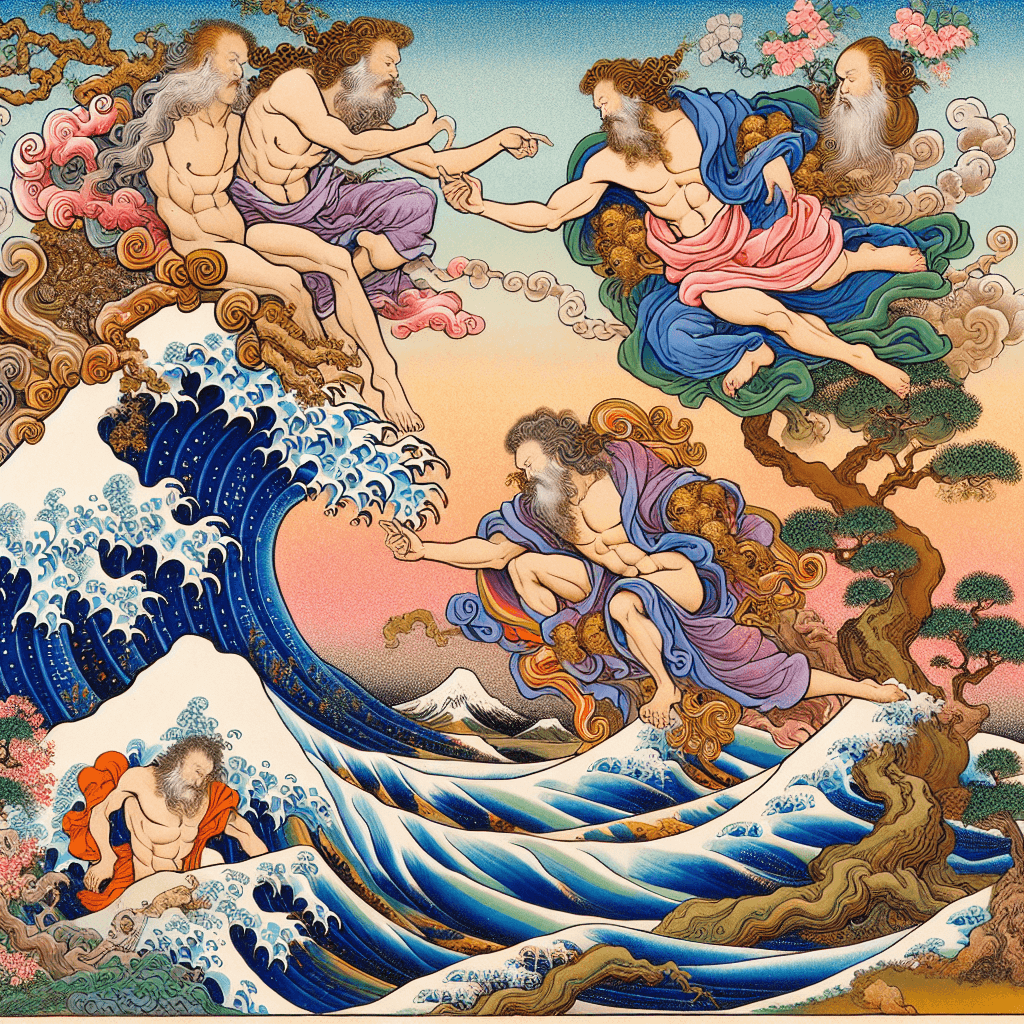David's Lament and Queer Theory: A Modern Interpretation
syndu | Jan. 3, 2024, 5:07 p.m.

David's Lament and Queer Theory: A Modern Interpretation
The ancient and poignant words of David's lament over the loss of Jonathan have echoed through the corridors of history, finding new resonance with each generation that encounters them. In the modern era, queer theory offers a fresh and insightful lens through which to interpret this biblical passage, challenging traditional readings and uncovering layers of meaning that speak to contemporary issues of identity and sexuality. This blog post explores the significance of David's lament within LGBTQ+ studies and the broader implications of a queer theoretical approach to this text.
Queer Theory and Biblical Interpretation
Queer theory, a field that emerged in the late 20th century, seeks to deconstruct established notions of gender and sexuality, questioning the binaries and norms that have traditionally governed our understanding of human relationships. When applied to biblical texts, queer theory encourages us to read between the lines, to uncover subtexts and implications that may not be immediately apparent within the constraints of heteronormative interpretations.
David's Lament Through a Queer Lens
David's lament is a rich site for queer analysis due to the intense emotional bond it depicts between David and Jonathan. The text itself, found in 2 Samuel 1:17-27, is a moving eulogy that expresses profound grief and admiration. David mourns Jonathan with words that are deeply affectionate and personal, referring to Jonathan's love as
"wonderful, passing the love of women."
Queer theorists might argue that the intensity and particularity of David's language suggest a relationship that defies simple categorization. The lament can be seen as an expression of a bond that transcends the platonic/erotic binary and invites readers to consider the fluidity of love and desire. By doing so, it opens up possibilities for seeing David and Jonathan's relationship as one that might today be understood within a queer context.
Significance in LGBTQ+ Studies
For members of the LGBTQ+ community, the reinterpretation of David's lament offers a form of validation and representation that has long been denied in traditional religious narratives. It provides a historical precedent for the existence and acceptance of diverse forms of love and companionship. By acknowledging the potential for a non-heteronormative reading of the text, queer theory empowers individuals to find their own experiences and identities reflected in sacred scriptures.
Challenging Traditional Readings
Queer readings of David's lament do more than offer alternative interpretations; they challenge the structures and institutions that have historically used texts like these to marginalize and oppress. By questioning the assumptions that underlie traditional exegesis, queer theory disrupts the power dynamics that have often silenced non-conforming voices and interpretations.
Conclusion
David's lament, when viewed through the lens of queer theory, becomes a powerful example of how ancient texts can be reimagined to embrace the full spectrum of human experience. It encourages a reading that is inclusive, reflective, and attuned to the complexities of human relationships. As we continue to explore the intersections of faith, identity, and sexuality, David's lament stands as a testament to the enduring quest for understanding and the recognition of love in all its forms.
A Mysterious Anomaly Appears
Light and space have been distorted. The terrain below has transformed into a mesh of abstract possibilities. The Godai hovers above, a mysterious object radiating with unknown energy.
Explore the anomaly using delicate origami planes, equipped to navigate the void and uncover the mysteries hidden in the shadows of Mount Fuji.
Will you be the one to unlock the truths that have puzzled the greatest minds of our time?
Enter the Godai



